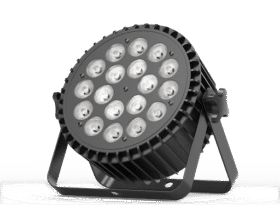Your law firm doesn’t need every client in town. What you need is the right clients who bring valuable cases and long-term growth. Kinetictraffic.com has seen how law firms waste thousands of dollars chasing broad, unfocused leads. Meanwhile, others thrive because they have mastered precision targeting with Google Ads.
If you’ve been relying on referrals or hoping your website eventually attracts attention, this is your opportunity to learn:
- How to take control.
- Focus on the right clients.
- Build campaigns that pay off.
Why Are Google Ads Essential for Your Law Firm?
Legal services are among the most competitive industries online. Potential clients don’t spend hours browsing dozens of law firm websites. Instead, they often click on the first few results they see. Studies consistently show that over 70% of searchers never go past the first page of results. This means, if your firm isn’t there, your competitors are.
Advantages of Google Ads for Law Firms
Google Ads offers your law firm something traditional advertising and even organic SEO can’t provide, which is immediate visibility. Instead of waiting months for optimization efforts to rank, your firm can appear at the top of search results today.
Even better, you’re getting more than visitors. You can target people actively searching for services like “lawsuit attorney for business owners.” With full control over your budget and ad spend, you can also direct resources to your campaigns.
Identify the “Specific Client” You Want to Attract
Targeting works only when you know who you want to reach. Start by defining your ideal client by asking:
- What practice area are they inquiring about?
- Where are they located?
- What’s their demographic or financial background?
For example, you’re a divorce lawyer who prefers high-net-worth cases. Therefore, your Google Ads should include keywords and messaging specific to business owners or professionals with complex financial portfolios.
Segment Your Clients for More Targeted Campaigns
Family law and personal injury practices often focus on individual clients. Meanwhile, corporate firms may go after business disputes or contract cases. Running separate campaigns for each ensures your message resonates with the right group instead of trying to appeal to everyone at once.
Use Keywords to Pinpoint Clients
Keywords can help you determine when and where your ads appear. Broad match keywords may bring more impressions, but they can also waste your budget on irrelevant searches. Phrase and exact match keywords help narrow the results to people searching for terms that closely match your services.
Leverage Your Long-Tail Keywords for Better Precision
Phrases like “estate planning attorney for business owners in Dallas” can reduce your competition while attracting clients with very specific needs. These searches signal stronger intent, which leads to higher conversion rates and more qualified leads.
Geo-Targeting and Location Settings
Law firms rarely serve clients across entire states. Most focus on cities, counties, or even neighborhoods. Google Ads allows you to show up within a specific radius around your office. This ensures your budget goes only to prospects who are actually in your service area. For example, a criminal defense lawyer practicing in one county can focus exclusively on searches within that jurisdiction.
Exclude Irrelevant Locations
Equally important is telling Google where not to show your ads. Without exclusions, your ad for “estate planning lawyer in Florida” could appear for someone searching in California. By excluding irrelevant locations, you save money and keep your leads relevant.
Write an Ad Copy That Speaks to Specific Clients
Your ad copy must immediately connect with the type of client you want. Include your practice area and location in the headline to increase your relevance and click-through rates. Instead of generic messaging like “Experienced Divorce Lawyer,” you can use “Divorce Lawyer for Business Professionals in Chicago.” This speaks directly to the client you want to attract.
Use Ad Extensions for Better Visibility
Ad extensions enhance your ad and make it more useful for prospects. Call extensions let potential clients reach you immediately, while location extensions highlight your office address for local visibility. Site link extensions can direct clients to specific services such as “Schedule Consultation” or “Learn About Business Divorce.” These tools help the right clients take action faster.
Leverage Your Audience Targeting Features
Google Ads allows you to show ads to people who are researching legal services. In-market audiences capture individuals who have recently searched for terms related to personal injury claims, divorce, or estate planning. Affinity audiences let you build broader awareness among people who fit certain lifestyle or interest categories.
Custom Audiences and Remarketing
Custom audiences give you the power to define your target by demographics, interests, or behaviors. Remarketing, on the other hand, re-engages potential clients who visited your site but didn’t contact you. For instance, an estate planning law firm could remarket to visitors who downloaded a free will template, encouraging them to book a consultation.
Budget and Monitor Your Google Ads Campaigns
Allocate more of your budget to campaigns that target high-value cases. A personal injury lawyer may focus more on catastrophic injury cases than minor claims, as the potential return is higher.
Track and Adjust Your Campaigns Regularly
You need to track performance through conversion tracking, which includes:
- Calls
- Form submissions
- Scheduled consultations
Regular A/B testing of ad copy and keyword strategies helps you refine campaigns for stronger results over time.
Avoid These Common Mistakes When Targeting Specific Clients
Even the best campaigns can fail if you overlook these critical details.
- Casting the net too wide with generic keywords wastes budget.
- Failing to add negative keywords (such as “free legal advice”) attracts unqualified leads.
- Ignoring mobile searches misses out on urgent prospects who need legal help on the go.
- Avoiding these pitfalls keeps your campaigns sharp and focused.
Conclusion
Google Ads gives your law firm a unique advantage. This is the ability to reach specific clients with precision. A combination of keyword strategies, geo-targeting, ad copy, and audience segmentation can ensure your budget goes toward attracting your clients. With consistent monitoring and optimization, you can generate qualified leads that turn into cases.
If your firm is ready to start targeting the clients you want, it’s time to partner with a Google Ads specialist.











Leave a Reply